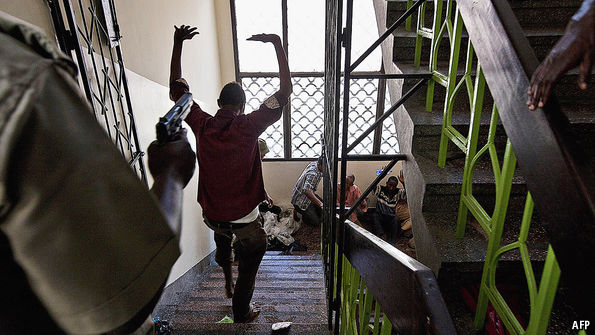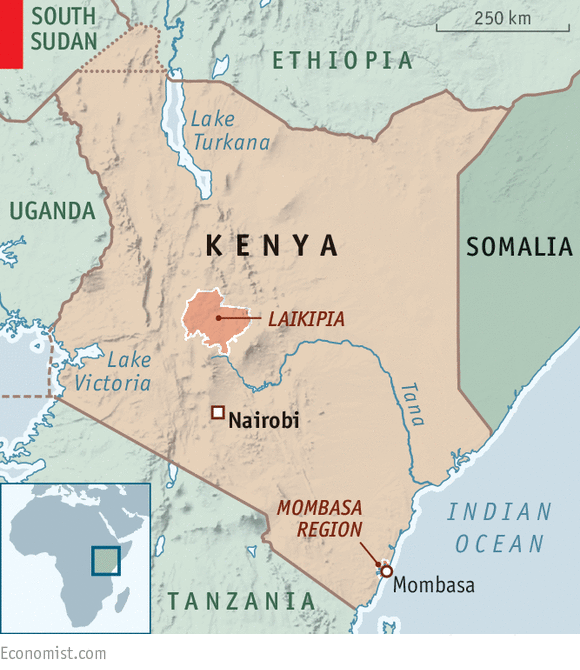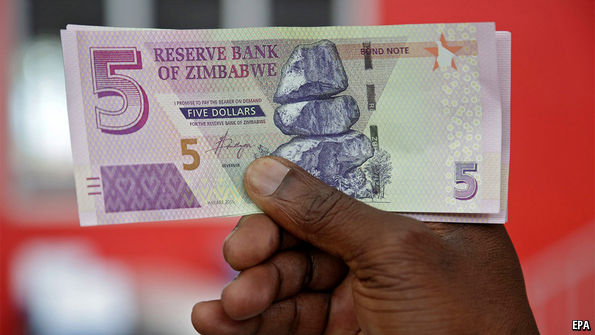http://www.fin24.com/Money/Investments/jse-extends-satrix-offering-with-two-new-etfs-20170224?utm_source=fin24-am-update&utm_medium=email&utm_campaign=Newsletters

Joao Silva/The New York Times
GREAT ZIMBABWE NATIONAL MONUMENT, Zimbabwe — Black Africans could never have built the Great Zimbabwe monument, or so the white rulers used to say.
Clearly, it was made by the Phoenicians or other visitors from faraway places, they insisted. Never mind that archaeologists and carbon dating had confirmed the obvious: that the monument was constructed by the ancestors of the Africans living nearby.
The Great Zimbabwe, a Unesco World Heritage site that is one of the few surviving precolonial monuments in sub-Saharan Africa, has long been the continent’s fiercest archaeological battleground. Europeans used its supposed foreign origins to justify their domination. Liberation fighters used it as a rallying cry for their cause, eventually naming their newly independent nation after it.
But the fight over the Great Zimbabwe did not end with independence.
As President Robert Mugabe and his ZANU-PF party have clung to power through violence, they have increasingly turned to the Great Zimbabwe for vindication.
ADVERTISEMENT
In the monument’s elegantly curved stone walls — at the center of a ruined city where thousands lived centuries ago — Zimbabwe’s current leaders have also found a rationale for their party’s 37 uninterrupted years in power.
In December, the party’s annual conference was held in a town near the Great Zimbabwe. Emmerson Mnangagwa, a vice president and one of the leading contenders to succeed Mr. Mugabe, spoke of the “unifying Great Zimbabwe monument from which the party’s motto, resilience, ingenuity, inventiveness and inspiration derive.”
Last year, Mr. Mugabe — the world’s oldest head of state, who has ruled Zimbabwe since independence — held an enormous celebration for his 92nd birthday at the Great Zimbabwe.
Mr. Mugabe spoke of the “majestic Great Zimbabwe monument whose African origins the imperialists wished so much to denigrate.” Then he ate a slice of a cake baked in the image of the monument that weighed 92 kilograms, or 203 pounds.
“Whether it’s the Rhodesians or the ZANU-PF government, they always want to try and milk some political glamour out of this very illustrious story,” said Nelson Chamisa, an opposition leader who served between 2009 and 2013 as the information and communication technology minister of a coalition government, referring to the white minority who controlled the country known as Rhodesia until independence.
But the Great Zimbabwe, Mr. Chamisa said, remained off limits to any opposition events.
“We’ve never tried in the past to go there,” he said. “Our colleagues in ZANU-PF guard it jealously. They would probably think that we want to snatch away its legacy.”
Sprawling across 2,000 acres in southern Zimbabwe, the Great Zimbabwe was a city founded in the 11th century and inhabited, at its peak, by more than 10,000 people.
Stone walls, rising as high as 32 feet and held together without mortar, formed large enclosures in which lived various communities. It was believed to be the capital of the local Shona people, who built similar, though smaller, communities throughout the region. Zimbabwe means “house of stone” in the Shona language.
Located near gold fields, the Great Zimbabwe was also part of a trading network extending up the East African coast to the Arab world, Persia and China. Perhaps because of the depletion of gold and a decline in trade, the Great Zimbabwe was abandoned around 1450.
“If you see how these things were built, it can tell you how these people were very intelligent,” said Lovemore Mugwisi, who was visiting the Great Zimbabwe on a rainy morning with his wife and four children. “There was no cement, no mortar; people were doing it just using their bare hands, and these structures still stand. Even before the settlers came here, there was civilization.”

Few ancient monuments survive across sub-Saharan Africa. Besides the Great Zimbabwe, said Webber Ndoro, director of the African World Heritage Fund, there are the rock-hewn churches in Lalibela and the ancient city of Aksum, both in Ethiopia, which is, significantly, the only African nation that was never colonized.
“Ethiopia was never colonized so the interpretation was from the Ethiopians themselves,” said Mr. Ndoro, a Zimbabwean archaeologist who worked as a curator at the Great Zimbabwe in the early 1990s. “But when you come to southern Africa, where you have a long history of colonization, there was an attempt by the colonial governments not to attribute anything of significance to the local populations because then their superiority would be challenged.”
As Europeans set foot in the Great Zimbabwe during the colonial scramble for Africa in the 19th century, exotic explanations about the monument’s origins abounded.
The ruins were the capital of the Queen of Sheba, or the site of King Solomon’s Mines, the arguments went.
European explorers, some financed by Cecil Rhodes, the British industrialist whose company created the colony bearing his name, said the Great Zimbabwe was built by the Phoenicians, or Egyptians, or a previous white civilization in Africa that was returning to reclaim its rightful place.
“It was only fantasy and speculation, but people in Europe loved it,” said Preben Kaarsholm, a Danish expert on Zimbabwe. “And it was used to justify colonialism and the imperialist onslaught.”
Archaeologists, starting as early as 1905, said that local Africans had erected the Great Zimbabwe, a conclusion reinforced by carbon dating and other scientific developments over the decades.
But the British colonial authorities, and then the white-minority government in power, would hear nothing of it. Books on the Great Zimbabwe were censored. An archaeologist, Peter Garlake, who refused to suspend his research on the monument’s African origins was forced into exile, returning only after independence in 1980.
In his independence speech, Mr. Mugabe said that his people were gaining “a new history and a new past.” The Great Zimbabwe would finally be theirs.
Analysts say it was around 2000 — when Mr. Mugabe faced serious challenges to his authority — that he saw the value in forging ties between his party and the Great Zimbabwe. The party began holding events at the site, including celebrations for National Unity Day and Mr. Mugabe’s birthday parties.
“Zimbabwe is supposed to unite around that monument, and, in identifying with the Great Zimbabwe, ZANU-PF is an organization that is intricately linked with that glorious past and should be permanently in power because of that claimed linkage with the past,” said Innocent Pikirayi, a Zimbabwean archaeologist and professor at the University of Pretoria in South Africa, explaining the government’s logic.
“It’s manipulation of the highest order when it comes to the past,” he said.
Despite the monument’s importance to Zimbabwe and Africa, little has been invested in its upkeep. Visitors can climb on top of fragile walls. Local villagers are free to come and go, often with their cattle.
“When you use monuments to get political mileage, you should at least invest in them so that your conscience is clear,” Mr. Pikirayi said.
On a rainy morning, Tongai Dzimiri, 27, and his brother, Nyasha, 12, led their family’s cows to graze on the Great Zimbabwe’s grounds.
“We grew up being told that this was built by our ancestors,” Mr. Dzimiri said.
But the present situation in Zimbabwe, he said, had instilled doubts in his mind — a sign that, in the continuing fight over ownership of the Great Zimbabwe, the new history and past promised by Mr. Mugabe were being questioned by the reality of a Zimbabwe ground down by corruption, poverty and misrule.
“Maybe some passers-by built this,” Mr. Dzimiri said, as he kept an eye on his cows, a couple of which had disappeared behind one of the Great Zimbabwe’s stone walls. “Maybe some white people.”





